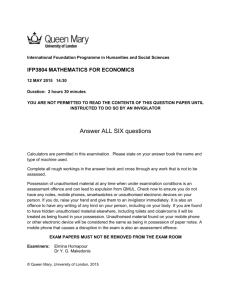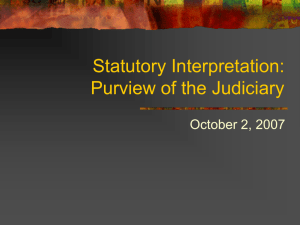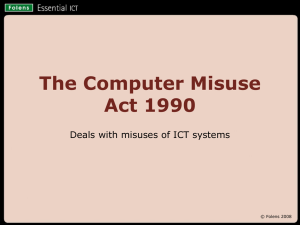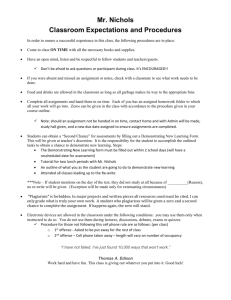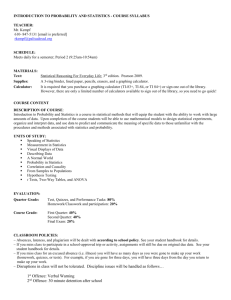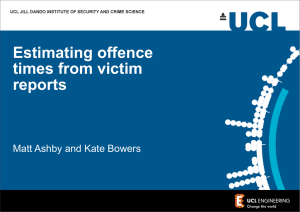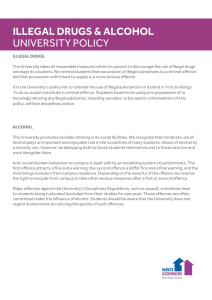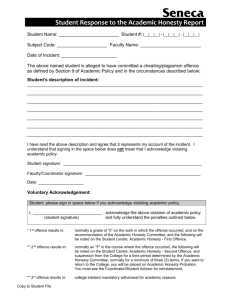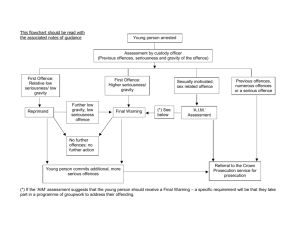Academic Offences for Students
advertisement
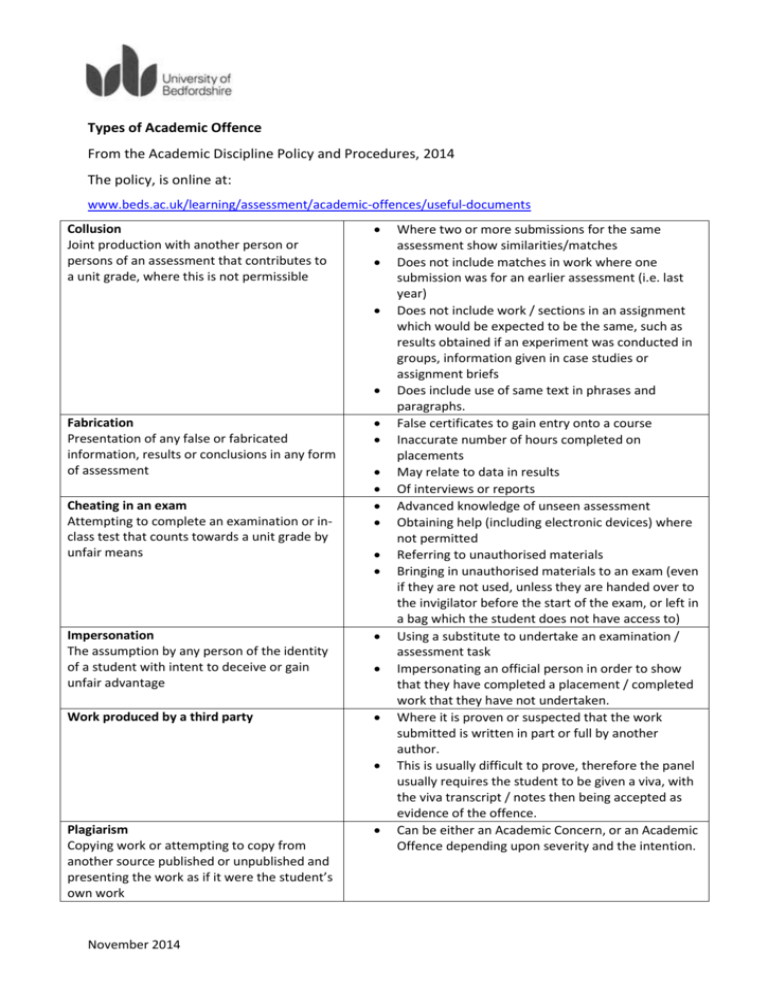
Types of Academic Offence From the Academic Discipline Policy and Procedures, 2014 The policy, is online at: www.beds.ac.uk/learning/assessment/academic-offences/useful-documents Collusion Joint production with another person or persons of an assessment that contributes to a unit grade, where this is not permissible Fabrication Presentation of any false or fabricated information, results or conclusions in any form of assessment Cheating in an exam Attempting to complete an examination or inclass test that counts towards a unit grade by unfair means Impersonation The assumption by any person of the identity of a student with intent to deceive or gain unfair advantage Work produced by a third party Plagiarism Copying work or attempting to copy from another source published or unpublished and presenting the work as if it were the student’s own work November 2014 Where two or more submissions for the same assessment show similarities/matches Does not include matches in work where one submission was for an earlier assessment (i.e. last year) Does not include work / sections in an assignment which would be expected to be the same, such as results obtained if an experiment was conducted in groups, information given in case studies or assignment briefs Does include use of same text in phrases and paragraphs. False certificates to gain entry onto a course Inaccurate number of hours completed on placements May relate to data in results Of interviews or reports Advanced knowledge of unseen assessment Obtaining help (including electronic devices) where not permitted Referring to unauthorised materials Bringing in unauthorised materials to an exam (even if they are not used, unless they are handed over to the invigilator before the start of the exam, or left in a bag which the student does not have access to) Using a substitute to undertake an examination / assessment task Impersonating an official person in order to show that they have completed a placement / completed work that they have not undertaken. Where it is proven or suspected that the work submitted is written in part or full by another author. This is usually difficult to prove, therefore the panel usually requires the student to be given a viva, with the viva transcript / notes then being accepted as evidence of the offence. Can be either an Academic Concern, or an Academic Offence depending upon severity and the intention.
